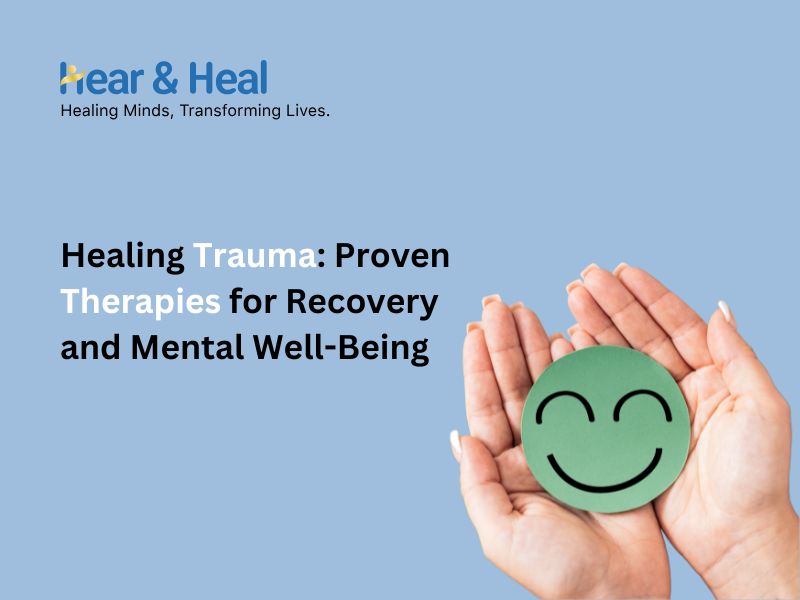














Recovering from trauma and addressing mental health challenges is a complex journey that requires specialised therapeutic approaches. Trauma-focused therapies are designed to help individuals process and overcome the lasting effects of traumatic experiences while building a foundation for mental well-being. Read on to learn about the effective therapies for trauma and how they contribute to the recovery process.
Trauma often leaves deep psychological imprints, leading to conditions such as PTSD, OCD, and anxiety. These imprints can disrupt an individual’s ability to function and maintain a sense of well-being. Trauma-focused therapies provide structured, evidence-based methods to address these challenges, helping individuals regain control over their lives.
By creating a safe and supportive therapeutic setting, these approaches aim to reduce the emotional, mental, and physical impact of trauma while equipping clients with the skills to manage their recovery.
For instance: A war veteran with PTSD might use trauma-focused therapy to safely revisit distressing memories, helping them desensitise their emotional reactions and regain a sense of normalcy in daily life.
Understanding the wide range of therapies available is essential for tailoring the right approach to each individual’s needs. Below are three highly effective therapies for trauma recovery, each addressing different aspects of trauma and mental health challenges:
Real-world context: For example, a child who has experienced abuse might use TF-CBT to reframe their beliefs about self-blame and rebuild a sense of security in their relationships.
Real-world context: A person with severe germ-related OCD might work with a therapist to gradually confront their fear of contamination, starting with small tasks like touching a clean surface and building up to more challenging exposures over time.
Real-world context: A survivor of domestic violence might benefit from trauma-informed therapy, where the therapist creates a safe space to help them regain a sense of control and autonomy over their life.
Recovering from trauma is a courageous journey that requires empathy, understanding, and evidence-based approaches. Therapies like Trauma-Focused Cognitive Behavioural Therapy (TF-CBT), Exposure and Response Prevention (ERP), and trauma-informed methods offer powerful tools to process traumatic experiences, reduce emotional distress, and rebuild a sense of normalcy.
If you or someone you love is struggling with the effects of trauma, it’s never too late to seek help. At Hear & Heal, our compassionate therapists are dedicated to guiding you through your recovery with personalised care and proven therapeutic techniques.